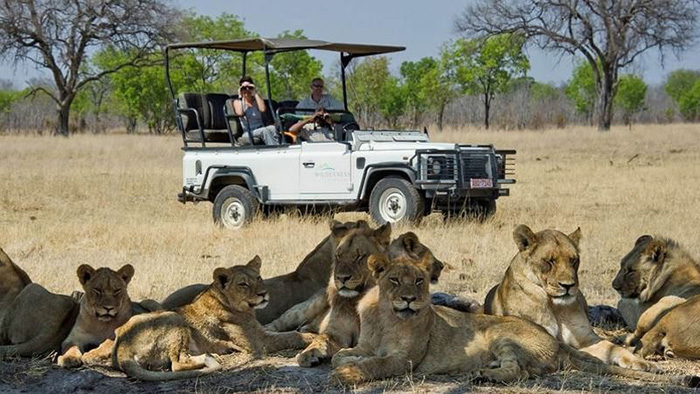Thieves steal US$50 000 worth of solar panels at Hwange National Park
By Leonard Ncube
Thieves have stolen about US$50 000 worth of solar panels installed to pump water for wildlife in at Hwange National Park.

The Zimbabwe National Parks and Wildlife Management Authority (ZimParks) has offered a reward of US$2 500 for information leading to recovery of the panels and apprehension of suspects.
The game park is home to wild animals like elephants, lions, zebras, giraffes and rhinos that draw tourists from around the world.
Vast stretches of the scenic animal sanctuary use borehole water and about 80 percent of the boreholes are solar powered.
Without solar power, thousands of animals may succumb to thirst and this may affect one of the country’s greatest tourist drawcards.
In 2018, national parks received 957 752 tourists.
The tourism sector is estimated to have generated $1,050 billion in receipts from international tourists, marking a seven percent growth from $917 million in 2017.
Zimbabwe recorded 2,6 million international tourist arrivals in 2018, 6 percent up from 2,4 million received in 2017.
Zimparks spokesperson Mr Tinashe Farawo yesterday said: “We have a problem of people who are stealing solar panels. We have recorded several incidents where solar panels have been stolen and we are worried that if we continue losing solar panels at this rate, we may not be able to continue pumping water for wildlife.”
He said in some cases the solar panels were destroyed by elephants at watering holes.
“We have lost US$50 000 worth of solar panels and this means we can’t pump water for animals if this continues. We are offering a reward for information that can lead us to recover the property or arrest suspects,” said Mr Farawo.
ZimParks installed solar power on a majority of boreholes especially in Hwange National Park with the help of conservation partners including tourism players, which is now incapacitated by the Covid-19 induced lockdowns.
Sources told the Chronicle that some villagers from surrounding communities working with suspected poachers from Zambia are responsible for vandalism of the solar panels in the national park.
Mr Farawo could not be drawn into commenting about the issue, saying investigations are in progress.
Meanwhile, Mr Farawo said the wildlife authority is on high alert following mysterious death of elephants in Botswana’s Okavango Delta where 110 jumbos had been reported dead last Friday since the start of last month.
Wildlife from the two countries freely migrate across borders.
According to Botswana media, wildlife officials ruled out poaching and poisoning as no ivory was taken. Initial test results also ruled out anthrax leaving the country in mystery about the cause of death.
Botswana has the world’s largest elephant population, at more than 130,000.
Last year dozens of jumbos died both in Zimbabwe and Botswana due to hunger.
Mr Farawo said no elephant deaths have been recorded in Zimbabwe so far.
“On that one there will be need for scientific research but for now we haven’t recorded any incidents. Around this time last year, we had recorded some elephant death incidents but this year nothing has happened hence we are not yet worried but we are monitoring,” he said. The Chronicle






